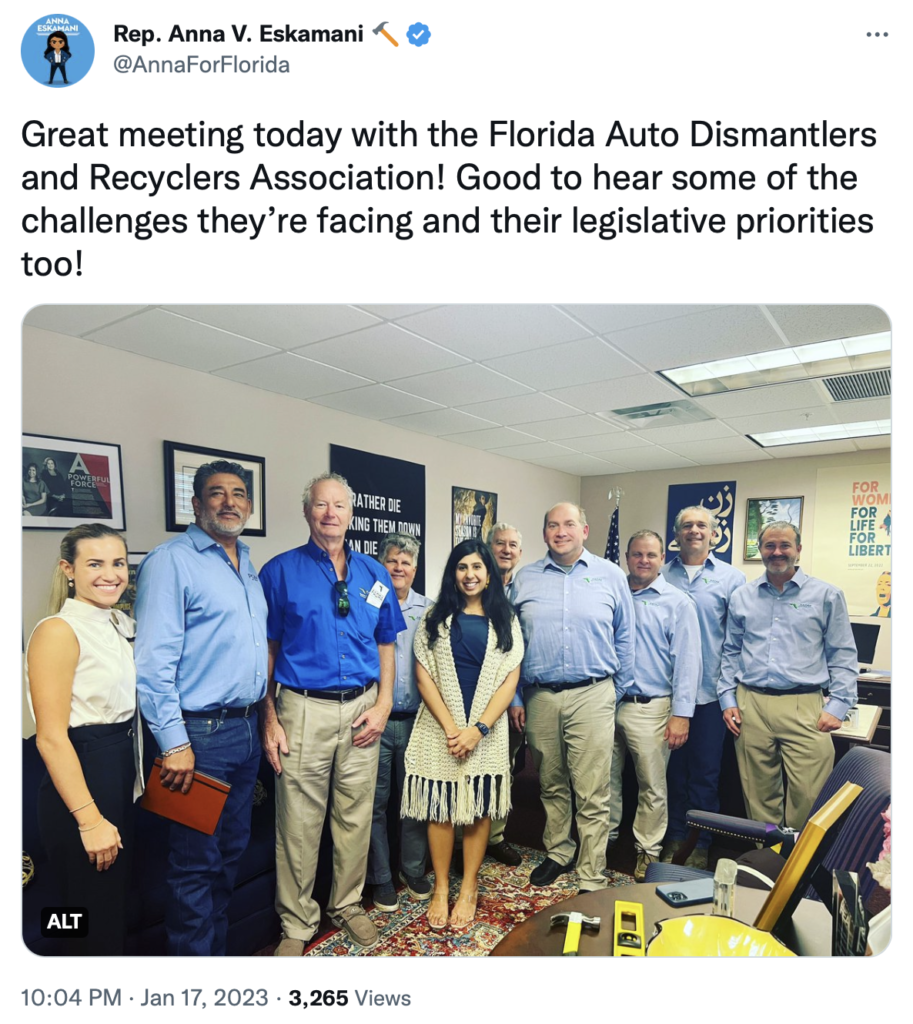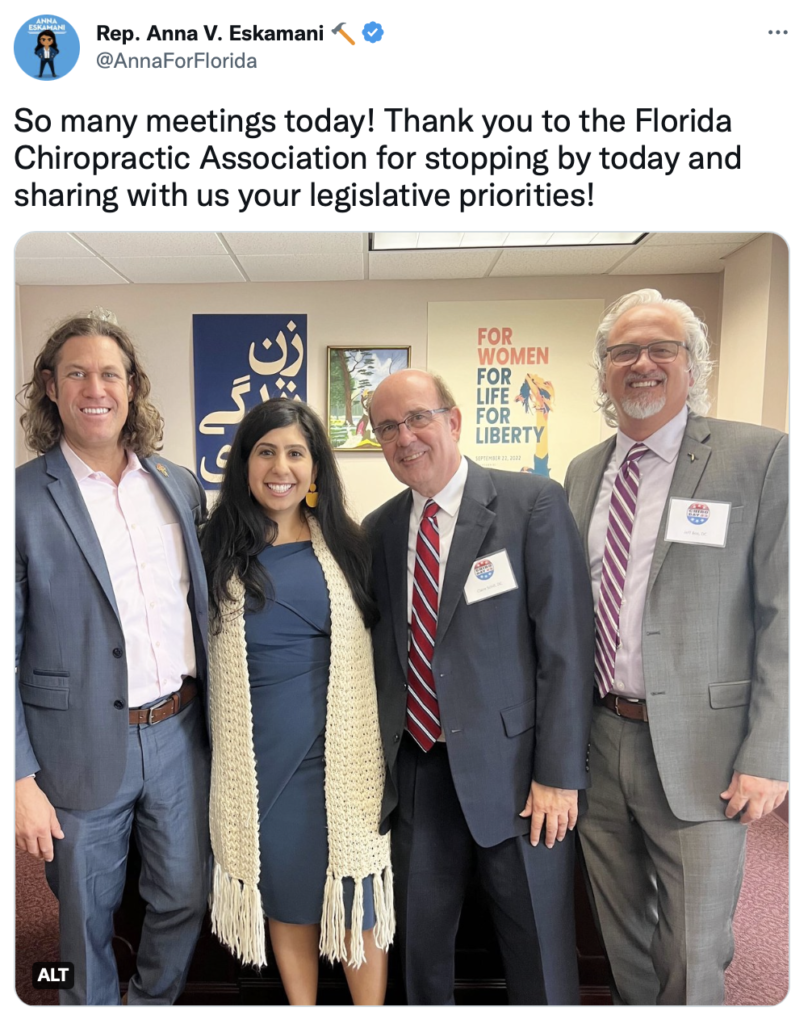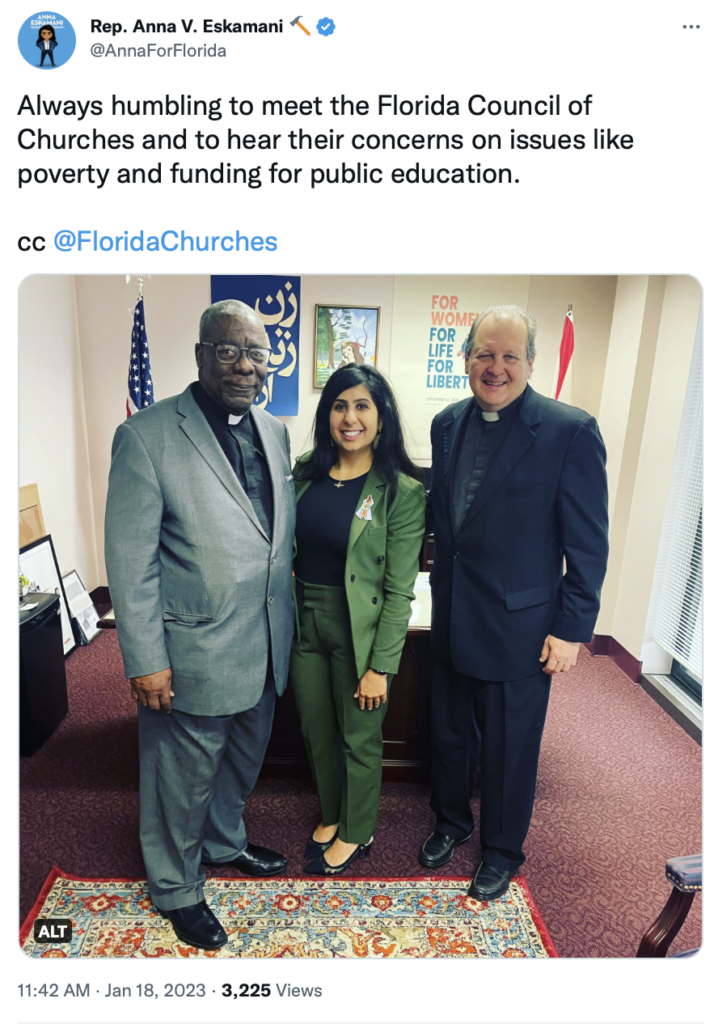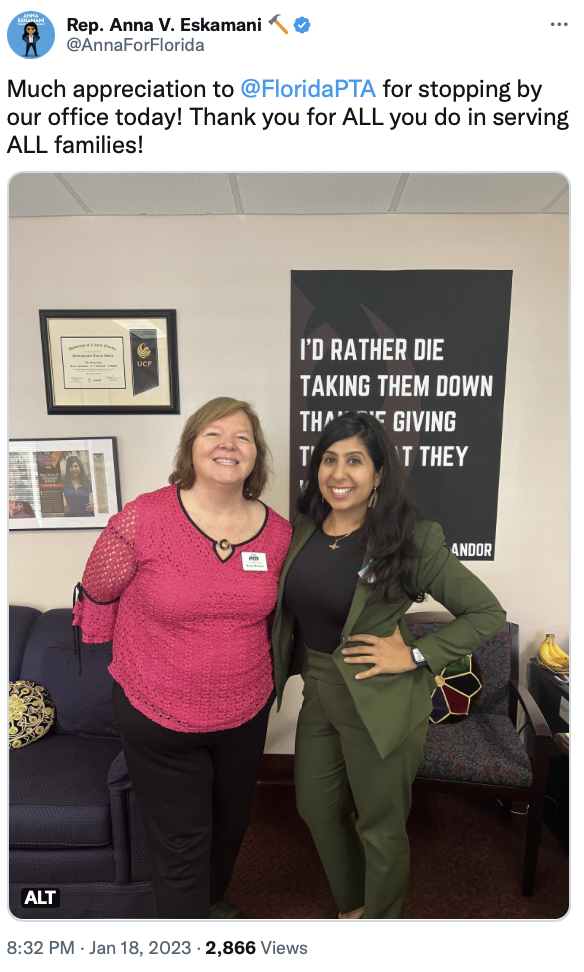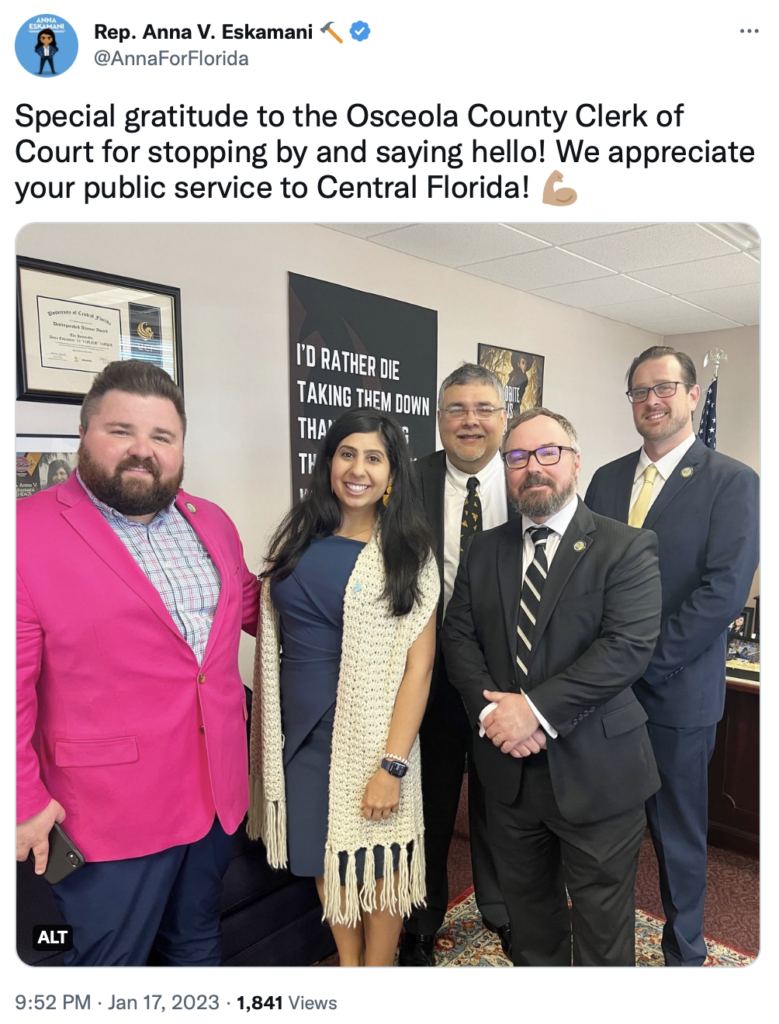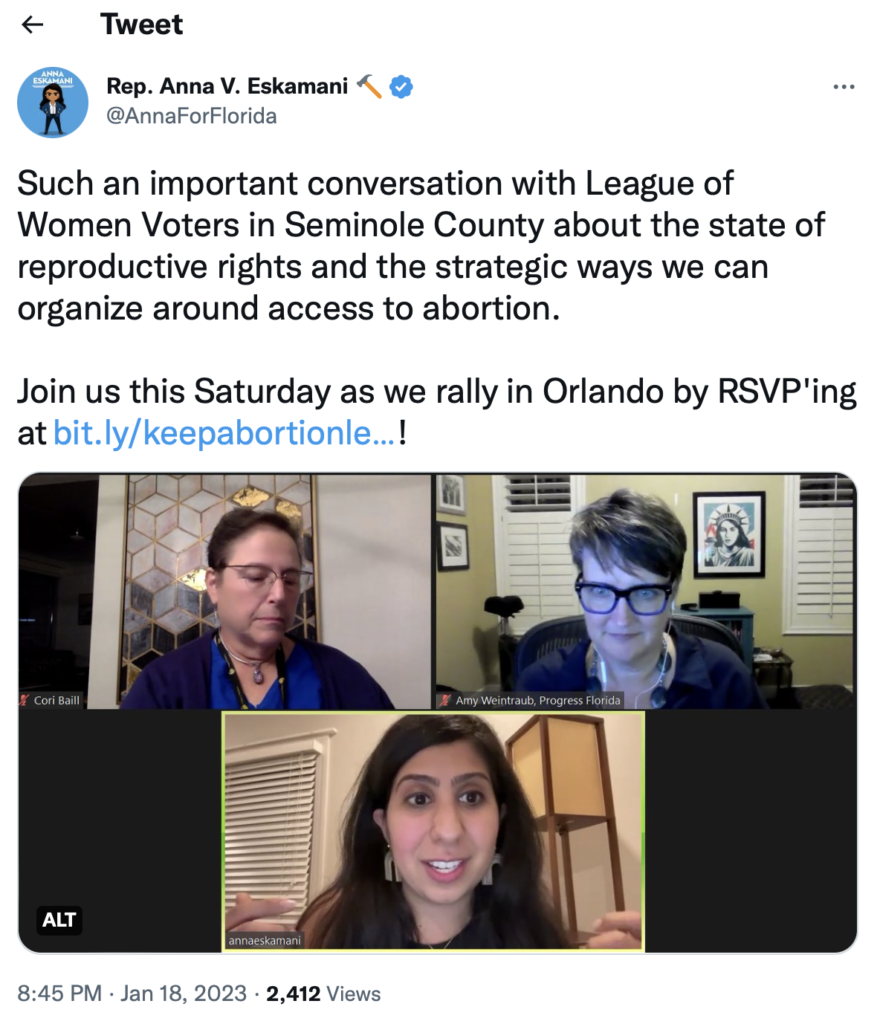Dear Friend,
We just got back to Tallahassee for the third week of committee meetings ahead of the 2023 legislative session but I wanted to make sure you saw our Team Update from last week’s meetings too.
We had a packed schedule last week; five of my committees held hearings and we squeezed in a bunch of meetings with constituents and advocates, too. You can read more about what we’ve been up to in the update below.
There’ll be four more weeks of committee meetings this month and next before the 60-day session officially begins on March 7. But remember: Even though the session hasn’t started yet, policies are already being debated and bills are already moving.
So the time to get involved is now.
Onward,
Rep. Anna V. Eskamani
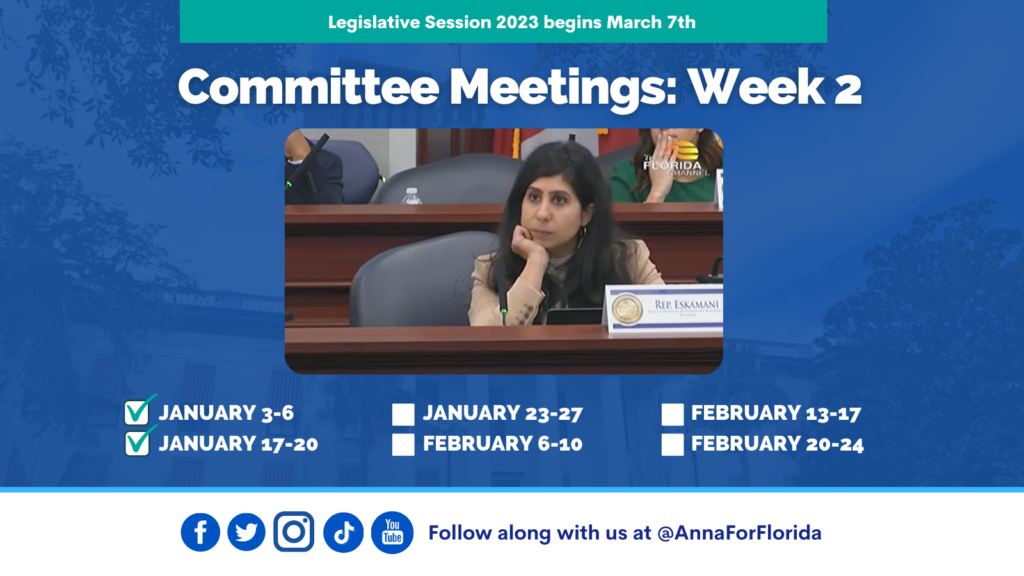
Florida’s Looming Water Shortage
One of my new committee assignments this year is the Infrastructure Strategies Committee, which met last week to hear an important briefing about Florida’s future water needs from the state’s top economist: Amy Baker, the head of the Office of Economic & Demographic Research (EDR).
Thanks in part to unchecked urban sprawl and an inadequate, regressive tax structure, Florida is badly behind on water investments right now. For instance, EDR’s estimates shows that the demand for water is expected to grow by 14 percent between now and 2040, driven almost entirely by real-estate development. But Florida’s current water-supply plans aren’t nearly enough to keep pace with that demand – EDR forecasts a shortfall by 2040 of 373 million gallons per day.
To accommodate that increased demand – while also ensuring treasured ecosystems like the Everglades or our many springs don’t run dry – we’re going to need to come up an extra $2.9 billion over and above what we already plan to spend.
And that’s just for water supply. We also need to ensure water quality, which will cost billions more. In fact, EDR estimates that it will cost $11.6 billion between now and 2040 just to comply with our current water-quality laws. The estimate has already jumped 10 percent since EDR’s last estimate, which shows how Florida has been falling behind in environmental protection.
Then there’s the need for conservation land – which is key part of ensuring both water supply and water quality. According to EDR, the average pace of state conversation land acquisition over the past five years, it would take *746 years* just to purchase the property that has already been identified as future conservation land.
And every day we delay, the price goes up. That’s EDR’s analysis found that 44 percent of commercial properties within 2 miles of land that Florida wants to purchase in the future for conservation has recently been developed or redeveloped. That shows how close real-estate development is encroaching – and how much risk we face of losing this land forever.
EDR is now beginning a similar analysis of how much investment our state will need to make in the coming years to protect our coastlines from rising sea levels.
These are all important reports for anyone who loves Florida and cares about her future. If you want to read them yourself, you can find them all here.
Watch the Infrastructure Strategies Committee meeting here.
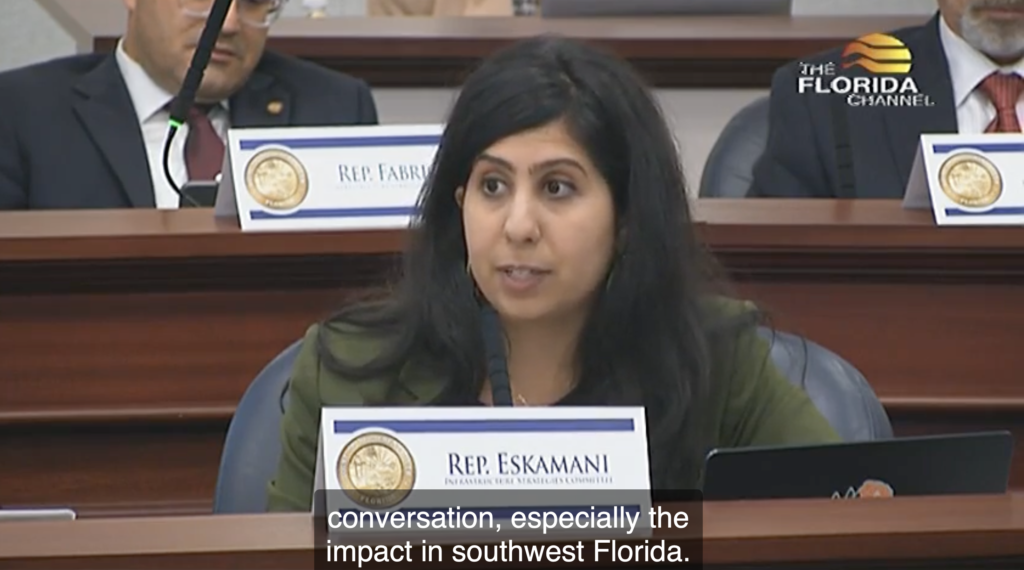
Fixing an Inadequate and Unfair Tax Structure
I mentioned earlier that one reason Florida is so far behind on its future investment needs is that our state has an inadequate and regressive tax structure. Well, I also am proud to serve as the ranking member of the House Ways & Means Committee, which oversees tax policy. And we had our first Ways & Means meeting this week, too.
We spent this first meeting discussing how Florida raises revenue – and who it raises it from.
Two important points that were immediately clear: Florida is heavily reliant on sales tax, the most regressive form of taxation there because low- and middle-income Floridians are forced to spend a much larger share of their income on it than wealthy Floridians.
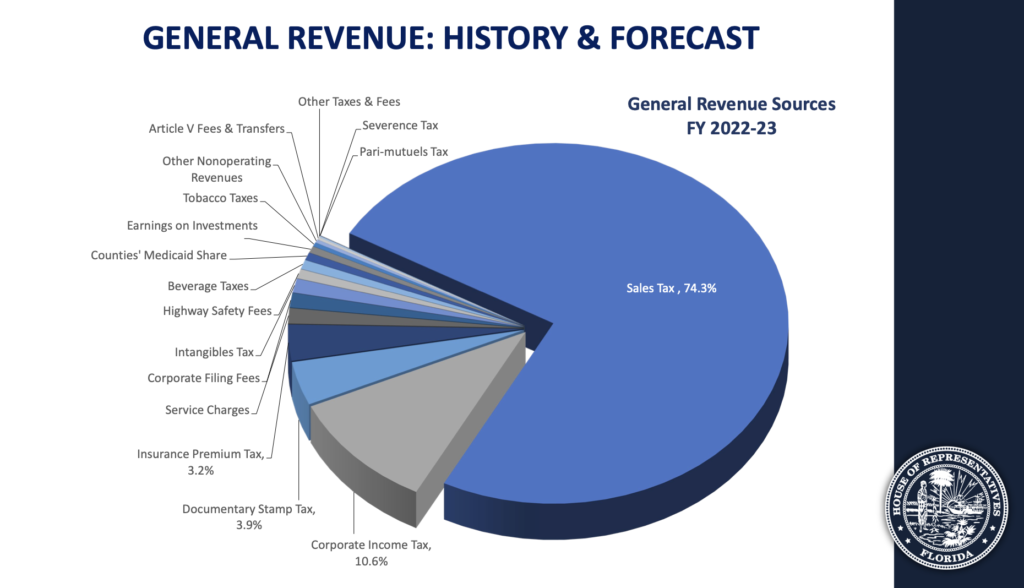
About 74 percent of our state’s general revenue comes from sales taxes. Texas is the only other state in the country that’s as dependent on sales taxes, according to research by the Pew Charitable Trusts.
The second point: We couldn’t survive without help from the federal government. More than a third of the money in our state budget is aid from Washington, D.C.
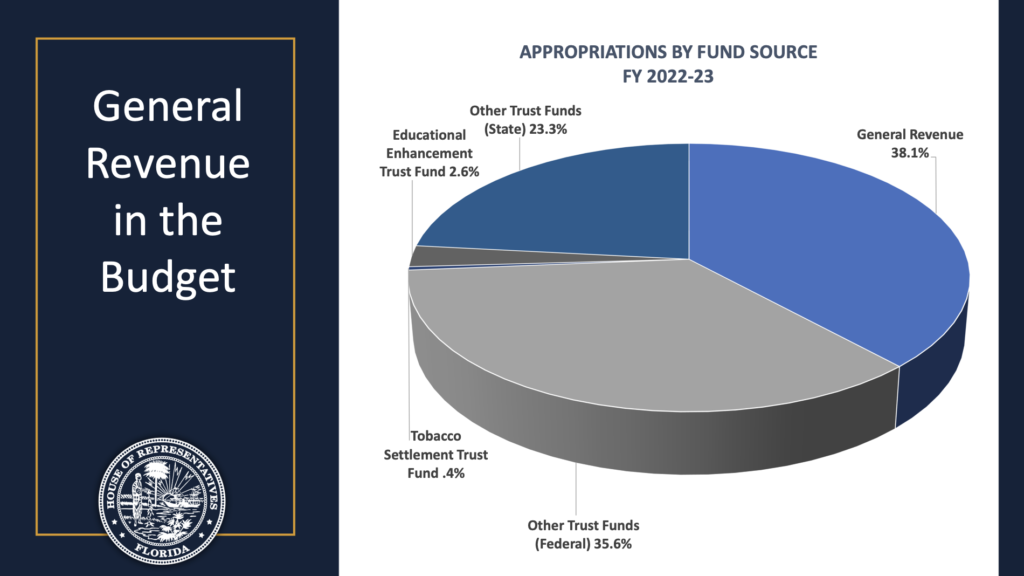
This is my second consecutive term as the ranking Democrat on Ways & Means, and I’m going to push hard to make us fix Florida’s broken tax code and make it fairer for all Floridians. For instance, it’s my hope that we will finally have a serious discussion this year about closing tax loopholes that global corporations have been exploiting for years, by passing a policy known as “combined reporting.”
And while I want to make sure corporations pay their fair share of Florida taxes, I’m also advocating to make sure that we stop passing tax breaks for big businesses and instead pass tax relief that saves money directly for everyday Floridians – like a bill I’m sponsoring to permanently eliminate sales tax on diapers.
Watch the Ways & Means Committee meeting here.
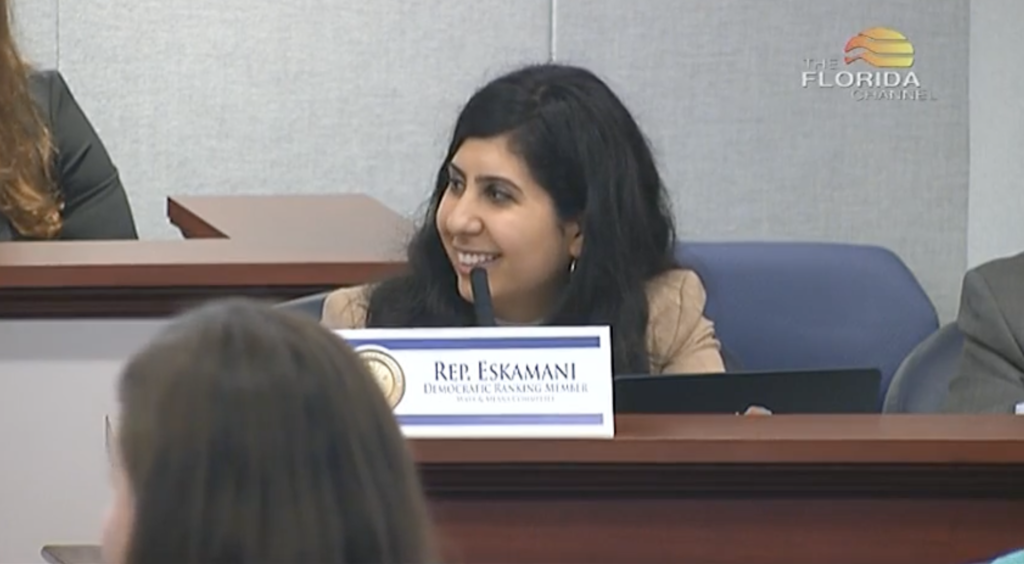
Helping our Student Athletes
In the Postsecondary Education & Workforce Subcommittee, we approved legislation to support our student athletes by giving more folks the chance to earn money from endorsements, autographs and other activities.
The bill, HB 99, expands on a 2020 law allowing intercollegiate student athletes to earn compensation from the use of their names, images and likeness (NIL) in advertising and other areas.
The legislation removes some unnecessary restrictions and will allow universities, colleges and school-booster groups to be more involved in the NIL process – for instance, by making introductions and arranging meetings between student athletes and potential sponsors. The goal is to make more of our student athletes aware of potential financial opportunities.
Importantly, we also amended the bill to provide important support services to student athletes. Our amendment requires schools to provide a financial literacy, entrepreneurship and life skills workshop to student athletes, and allows them to provide support services such as reviewing contracts, preparing tax returns and providing financial advice.
For young folks who are just starting their professional careers, it can be overwhelming to navigate this world and we don’t want them to be taken advantage of by predatory actors. This will make sure they have the knowledge and skills to make the most of the opportunities they have earned.
I was proud to vote for this bill, which passed the committee unanimously.
Watch the Postsecondary Education and Workforce Subcommittee meeting here.
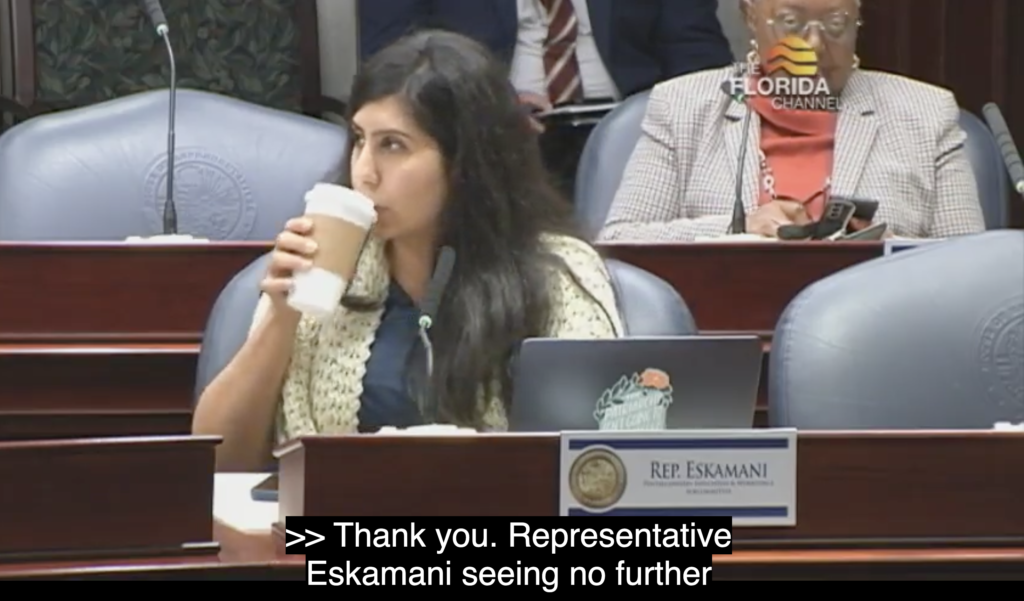
Diving into Florida’s Transportation Budget
In the Transportation & Modals Subcommittee, we had a briefing with the secretary of the Florida Department of Transportation.
FDOT is one of the biggest and most important state agencies. It helps build everything from local roads to Interstate highways, bus systems to bike trails, and passenger rail to ports. It’s currently in the midst of a $56.1 billion five-year work program – with 25 percent of the funding coming for the federal government.
It faces some big challenges. The state of Florida funds FDOT primarily through the state’s gas tax, which is expected to shrink as a revenue source in the coming years as electric cars and trucks replace fossil fueled-powered vehicles and public transit systems expand. The agency is also having to incorporate the future impacts of climate change and rising sea levels into its construction – and retrofitting infrastructure that’s already been built in vulnerable areas.
But we have some big challenges, too. President Biden’s bipartisan Infrastructure Investment and Jobs Act and Inflation Jobs Act are providing billions of dollars to Florida and other states to help repair aging roads and bridges, expand mass transit, foster climate resiliency and encourage electrification.
And we all can play a role in this. During the meeting, I asked FDOT Secretary Jared Perdue what how everyday Floridians and local citizen lobbying can help Florida secure as much of this federal funding as possible, since much of it will be awarded through competitive grants.
“Local communities throughout the nation are going to be pursuing these grants,” Perdue responded. “So any grassroots support from individuals [will help]. When multiple communities get together and speak with one voice, I’ve seen that to be very powerful in terms of the success rate in terms of pursuing federal discretionary grants.”
Watch the Transportation & Modals Subcommittee meeting here.
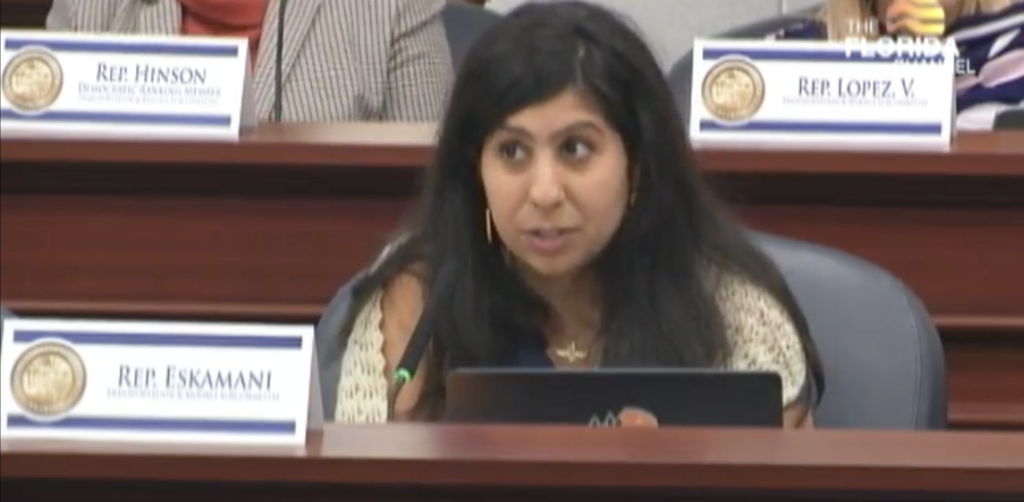
Rebuilding our Hurricane-Stricken Communities
My fifth and final committee meeting of the week was with the Select Committee on Hurricane Resiliency and Recovery. This is a new committee created in response to Hurricanes Ian and Nicole, and we’ve been tasked with identifying what more needs to be done to help our communities recover from those storms but also to prepare for future ones.
During this week’s meeting, we heard testimony from folks serving on the front lines of these disasters, including representative from Charlotte, Collier and Lee counties in southwest Florida and from Flagler and Volusia counties on the central Atlantic Coast.
We heard some incredibly impactful stories about what these communities have endured and how they are continuing to rebuild. I lifted up the need for direct assistance to individual Floridians, particularly with housing for folks forced out of their homes – which we saw happen here in Orlando because of the massive flooding caused by Ian’s rainfall.
We also received a briefing from Kevin Guthrie, the director of the Florida Division of Emergency Management. According to the director’s presentation, the state and Federal Emergency Management Agency (FEMA) have together disbursed nearly $900 million in individual assistance and more than $400 million in public assistance in response to Hurricane Ian, which was the deadliest storm to strike Florida in nearly 100 years. FEMA has also is also still providing housing to more than 6,000 Floridians and has helped more than 80,000 Floridians find housing altogether.
Watch the Select Committee on Hurricane Resiliency and Recovery here.
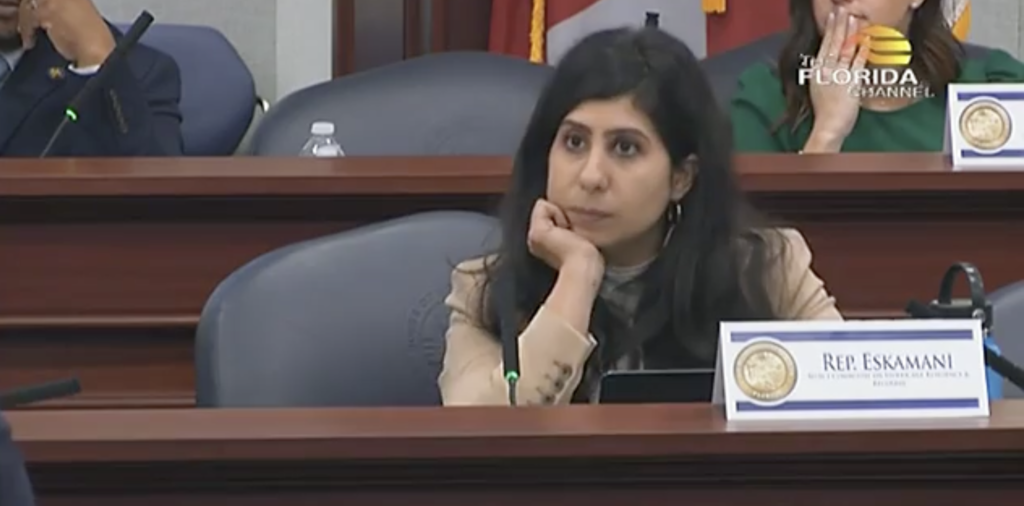
House Republicans Unveil a Dangerous Plan to Gut Public Schools
Tallahassee Republicans continue to attack public education.
This week, Republican leaders in the Florida House of Representatives proposed a dangerous plan to dramatically expand the state’s already poorly run private-school voucher program.
The House proposal would take money out of public schools and give it to anyone – regardless of need – to spend on things like private school tuition, personalized tutoring or even home-schooling. And it would do so with zero accountability for the private institutions that profit off this public money. Some of these schools have been found falsifying safety inspections and failing to pay workers, erasing the history of slavery or teaching students that humans and dinosaurs once lived together, and even discriminating against LGTQ+ families or children with special needs.
And by eliminating income restrictions, we’ll now be giving taxpayer money to subsidize extremely wealthy families who choose to enroll their children in expensive academies where the tuition can cost more than college.
This will only serve to further undermine public schools that are already struggling to find and keep teachers because of low pay and the politicization of education.
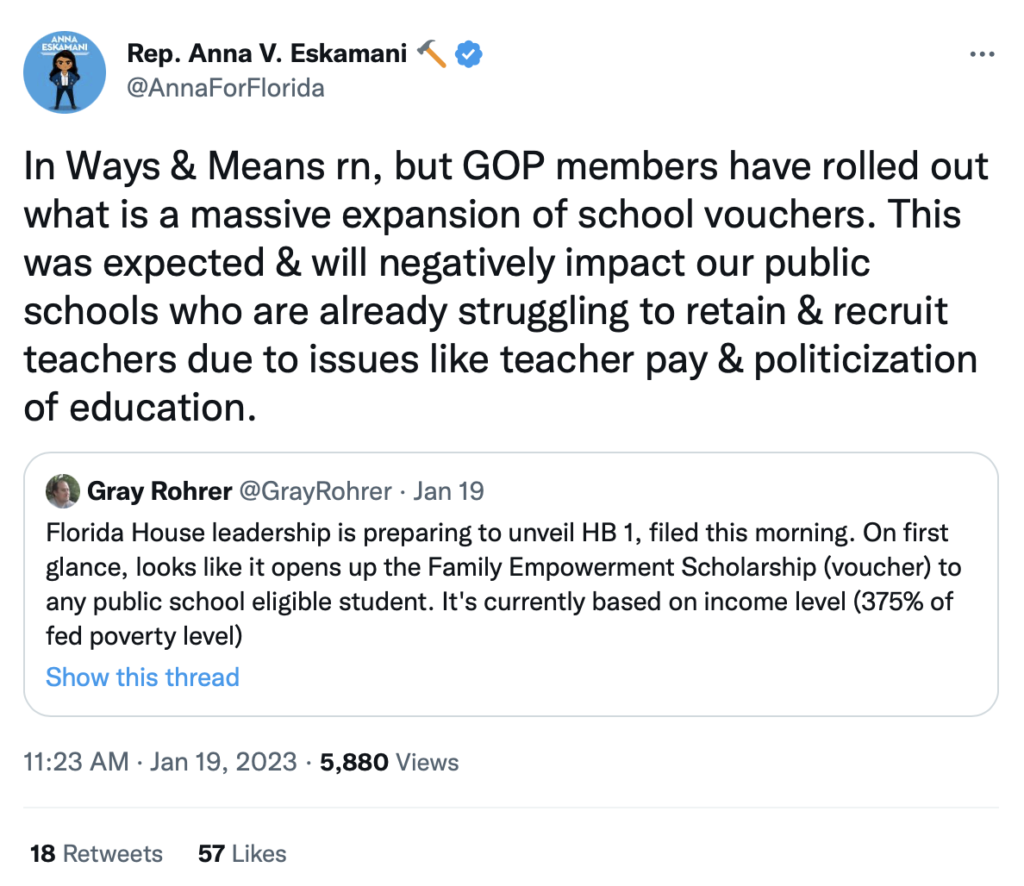
The Governor Tries to Erase Black History
At the same time, Gov. Ron DeSantis continued his own assault on education – particularly his efforts to erase any teaching of Black History.
This week, news broke that the governor’s administration rejected a College Board request to approve an Advanced Placement African-American Studies course in Florida high schools.
This, of course, is on top of the governor’s unconstitutional efforts to muzzle university professors who teach courses about issues related to race, slavery and U.S. history, and to stop schools from supporting diversity, equity and inclusion initiatives.
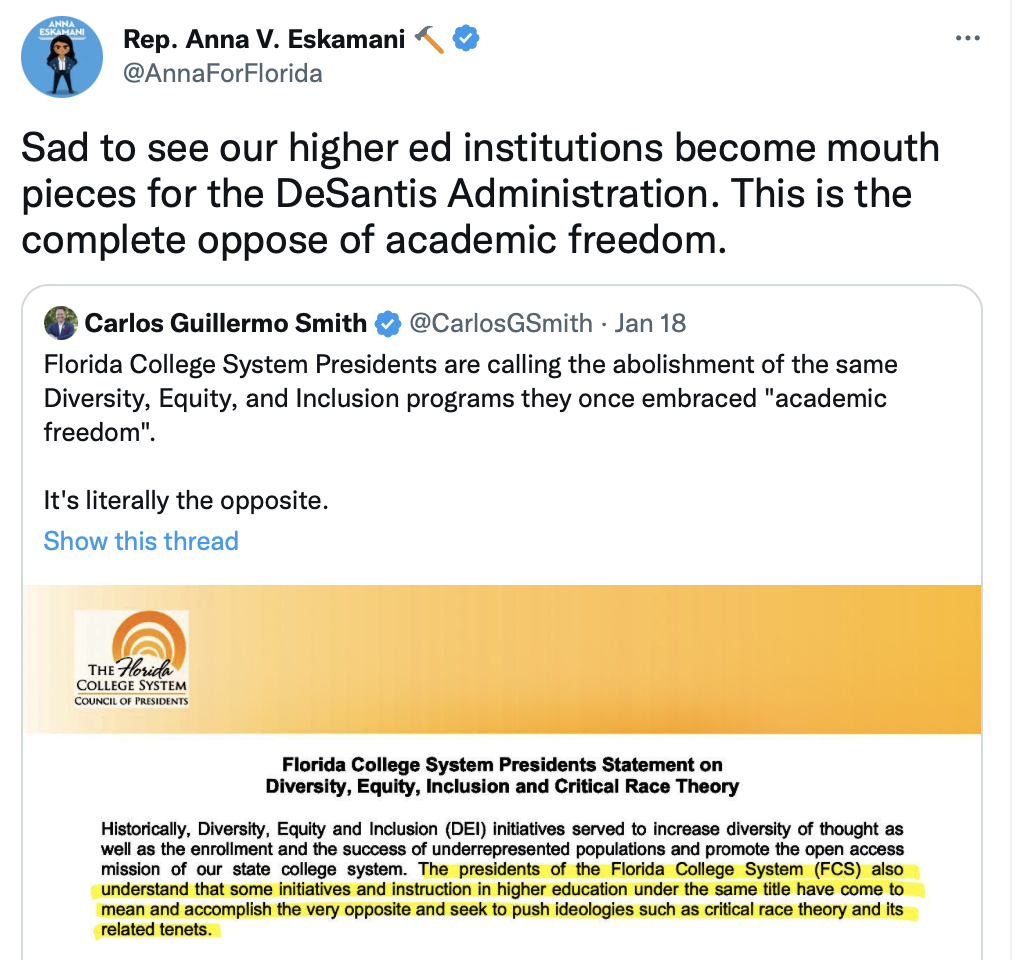
So Many Meetings!
In between all our committee hearings, we squeezed in a bunch of meetings with constituents from back home and advocates from all over the state. Here are just a few:
